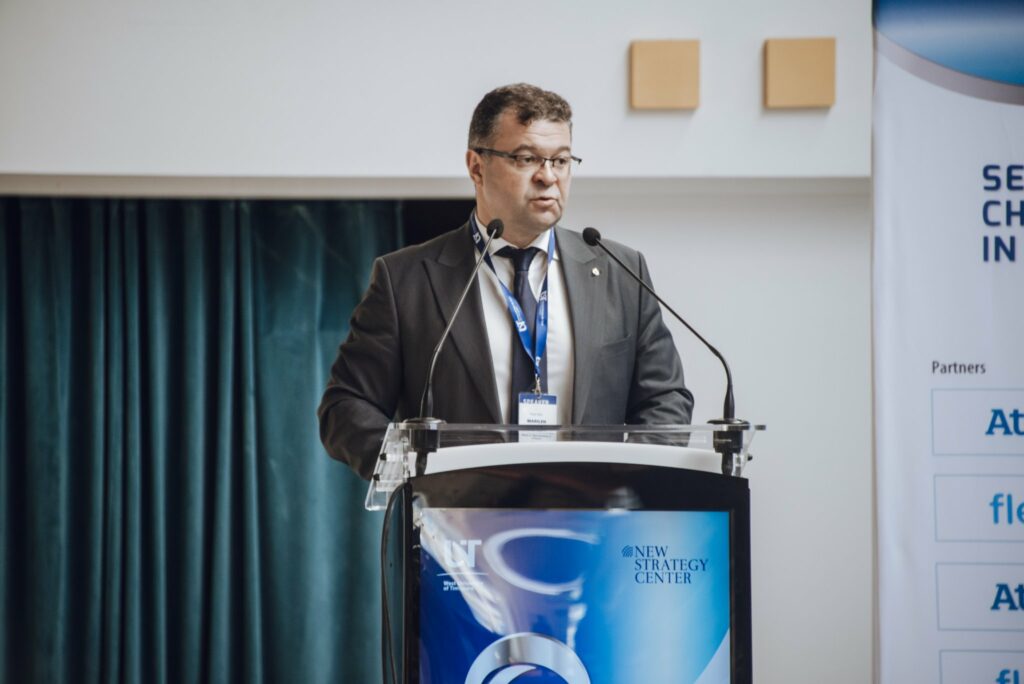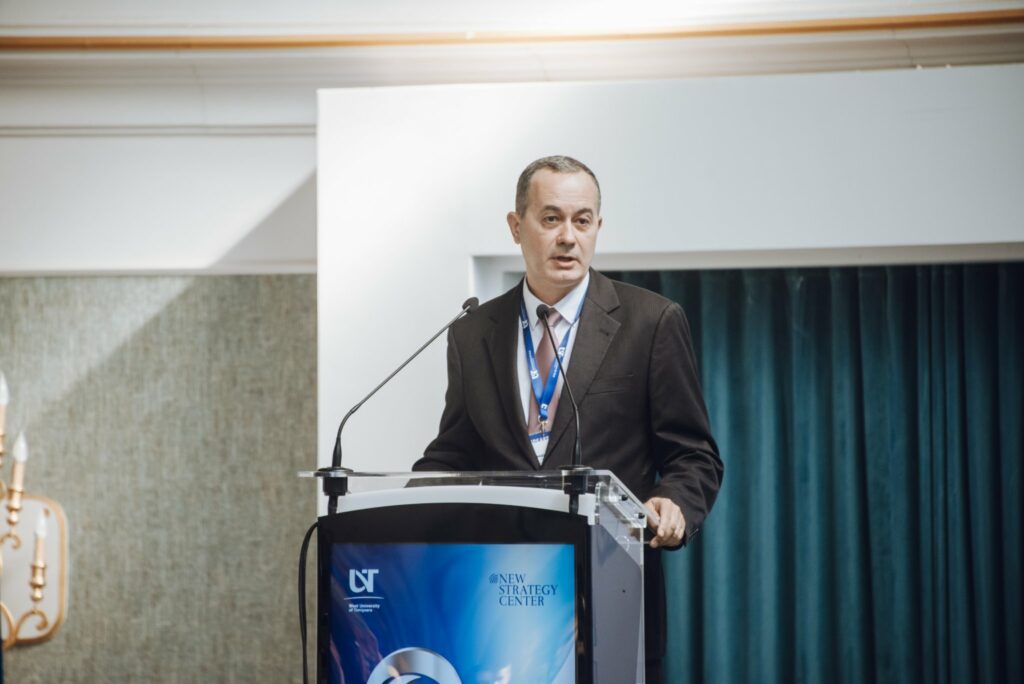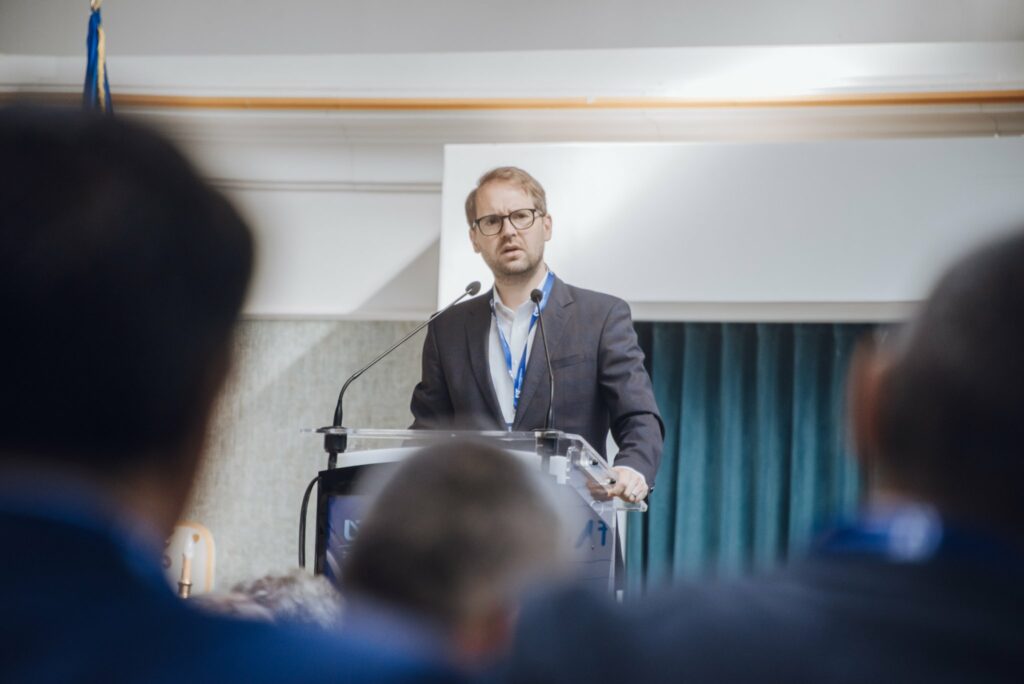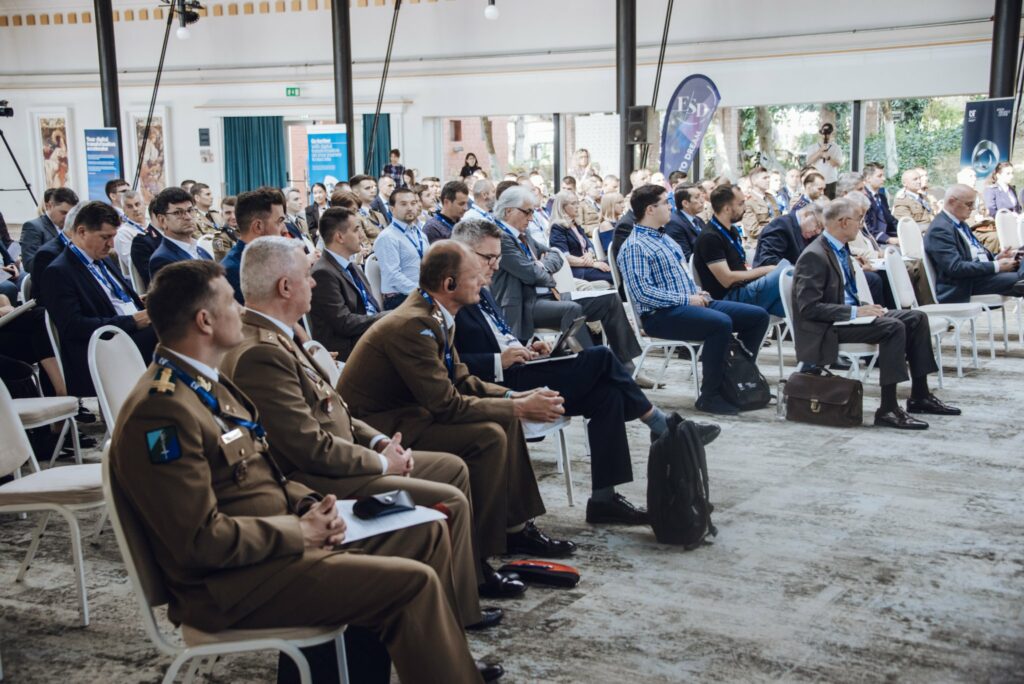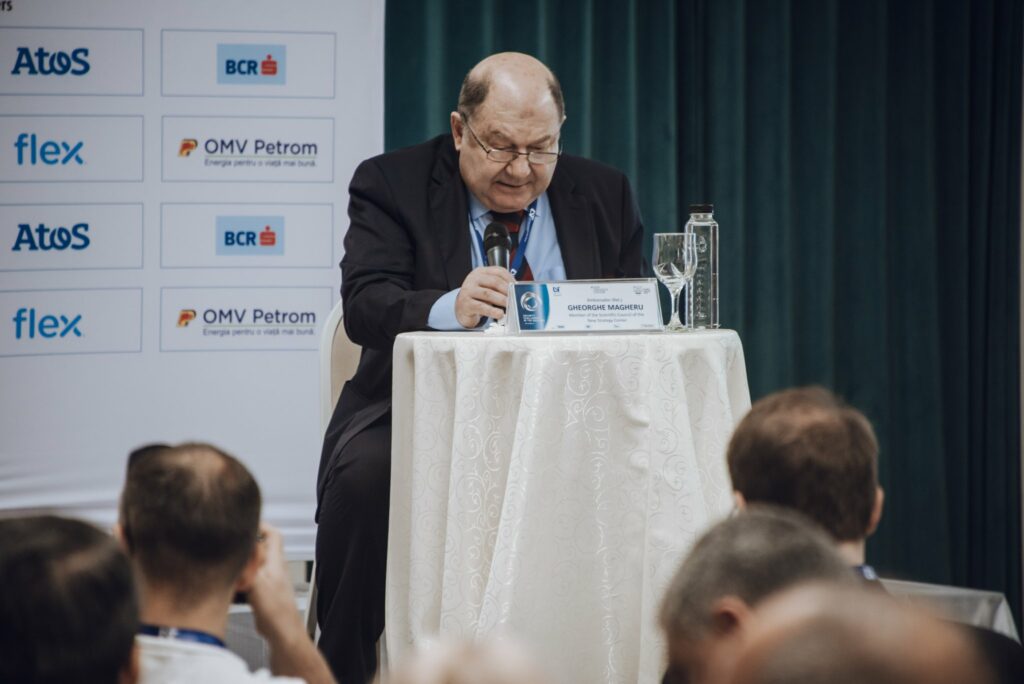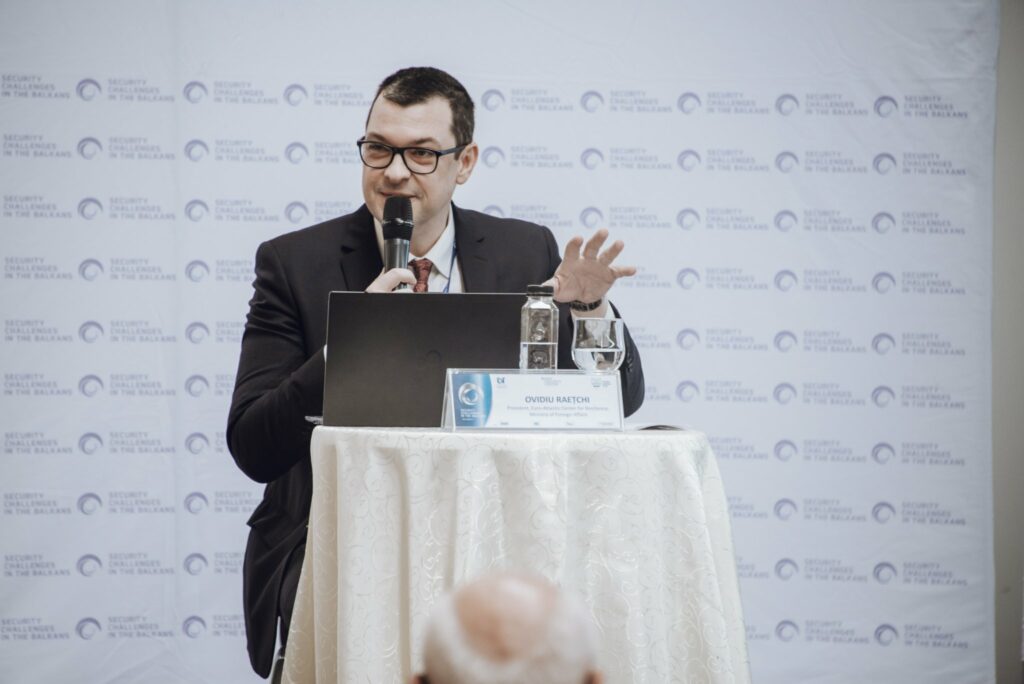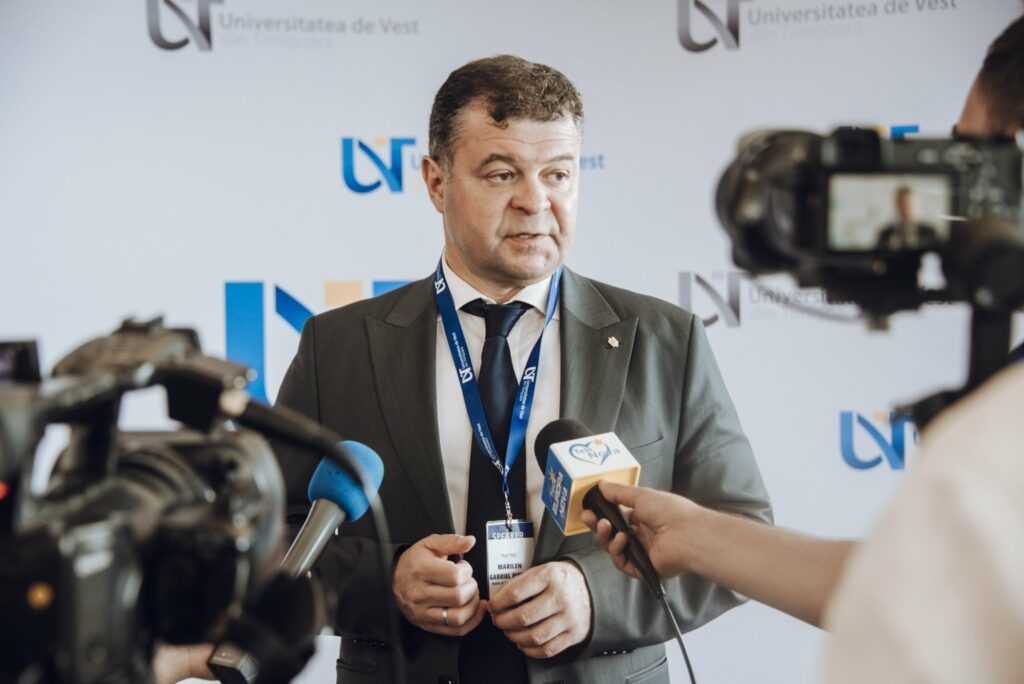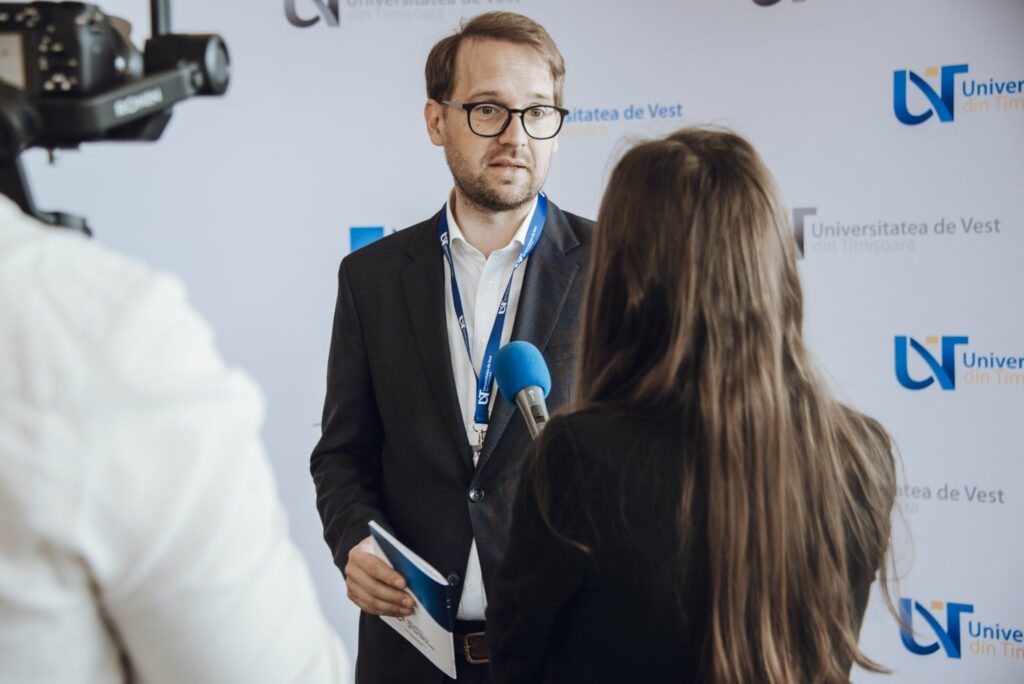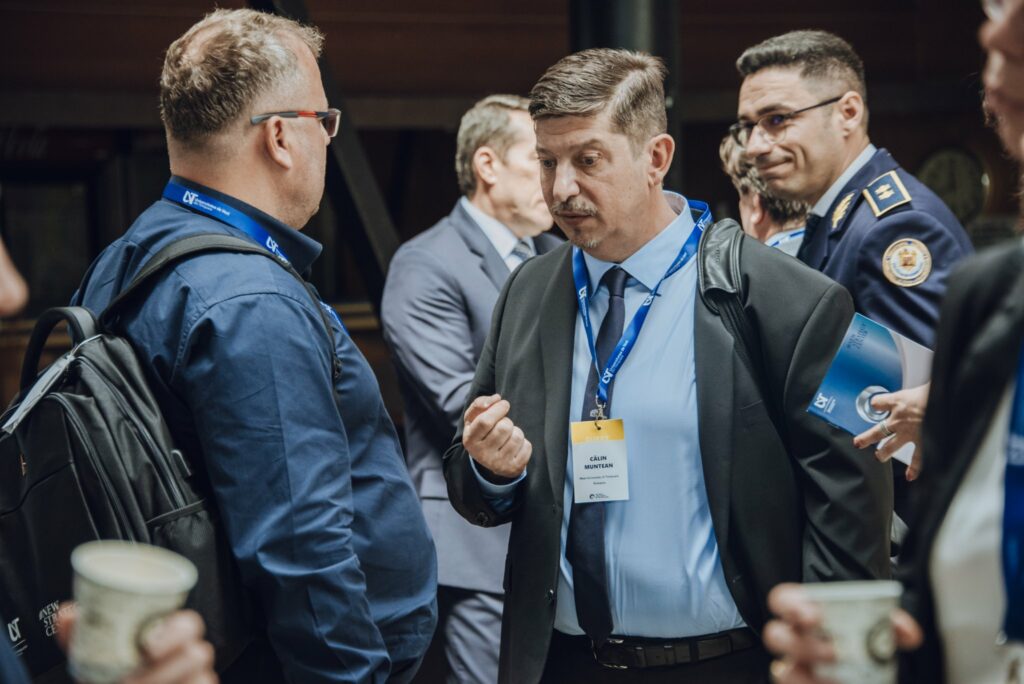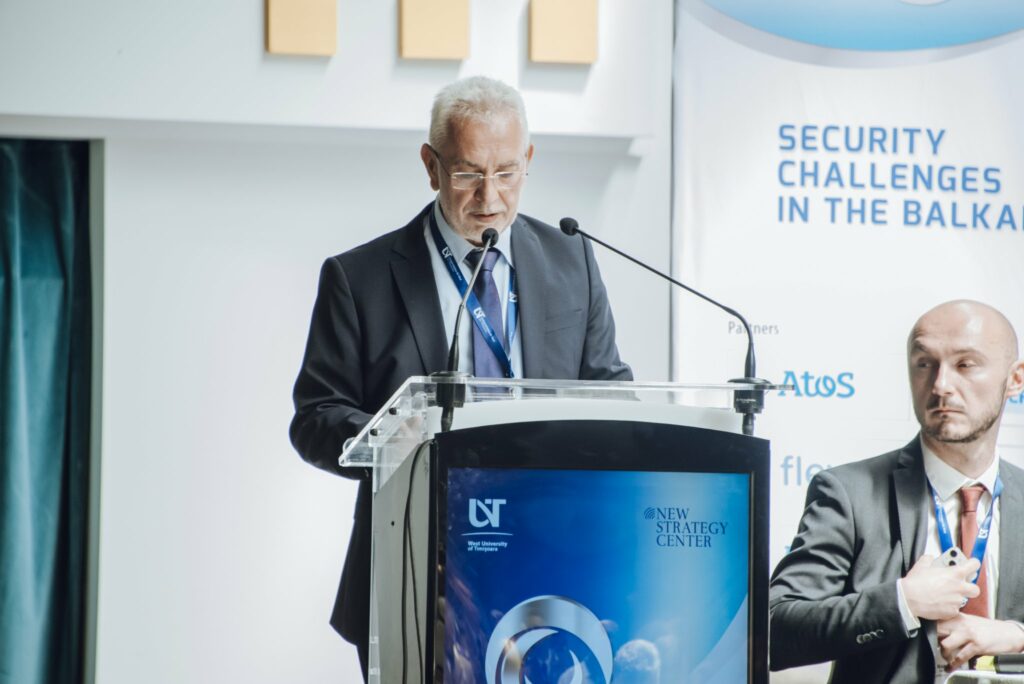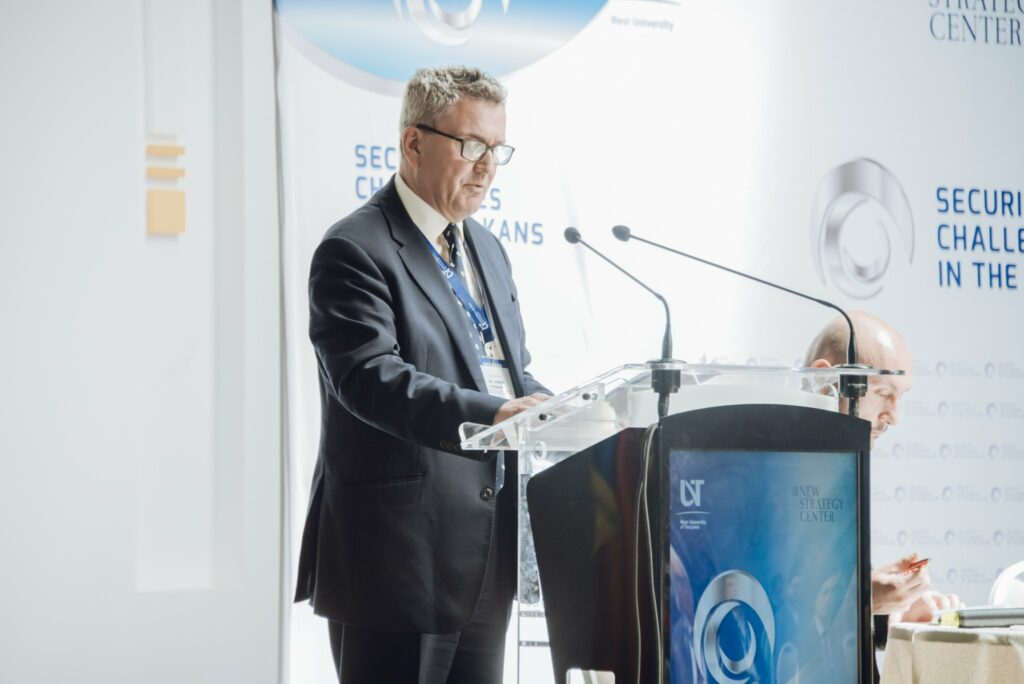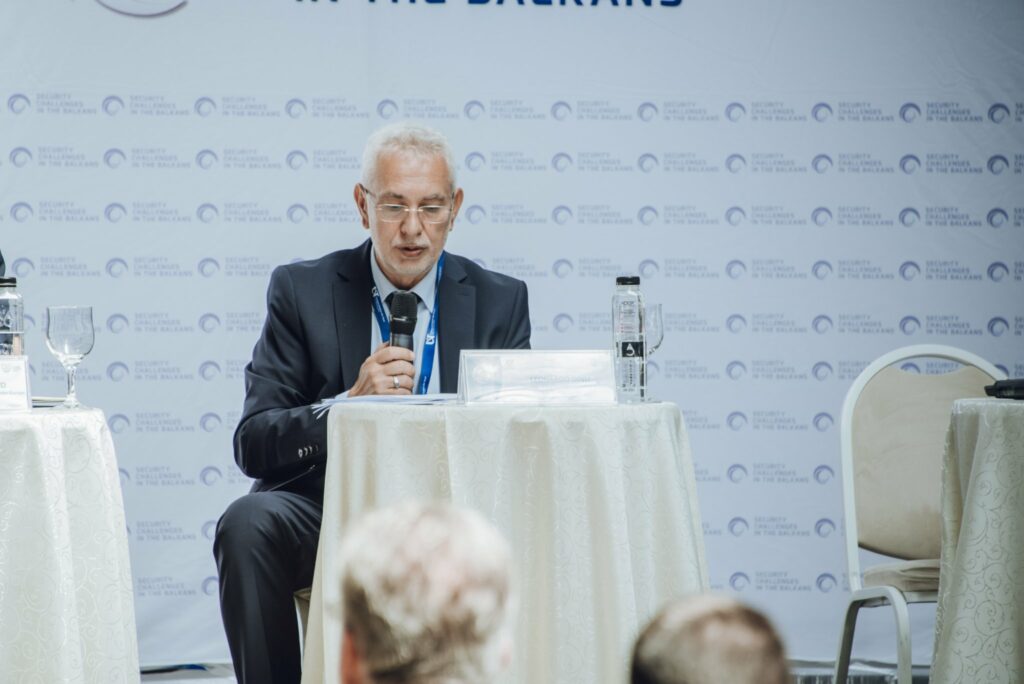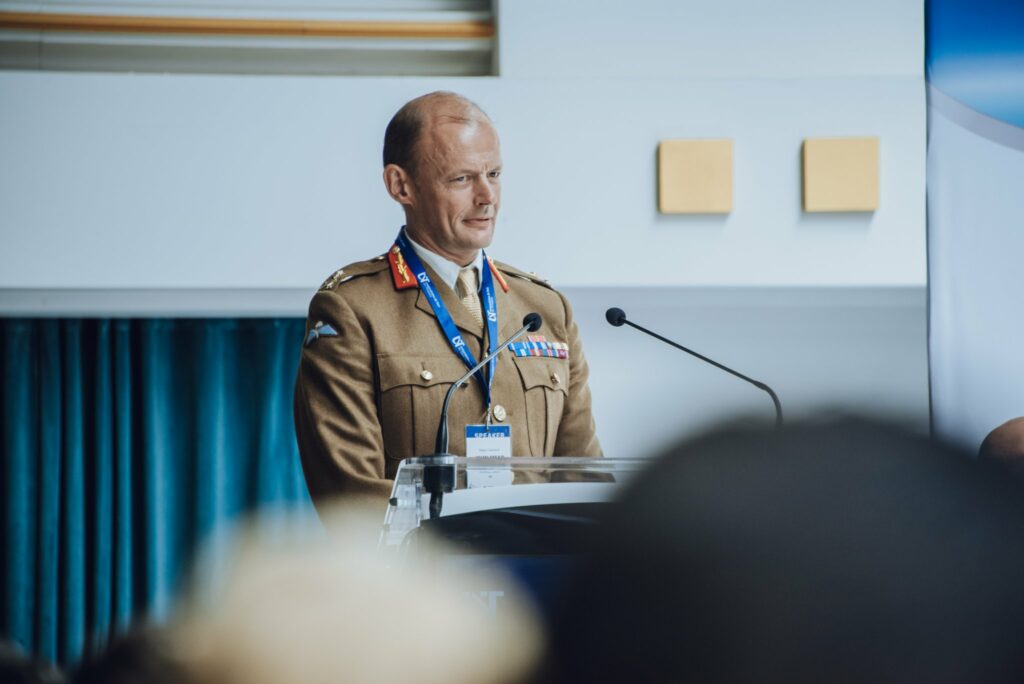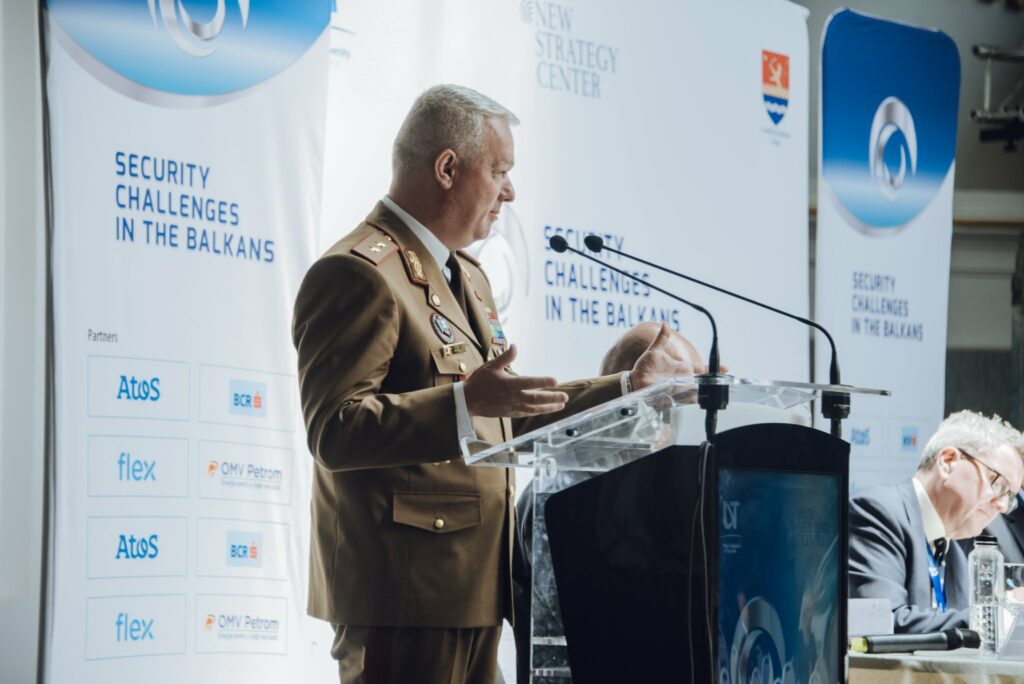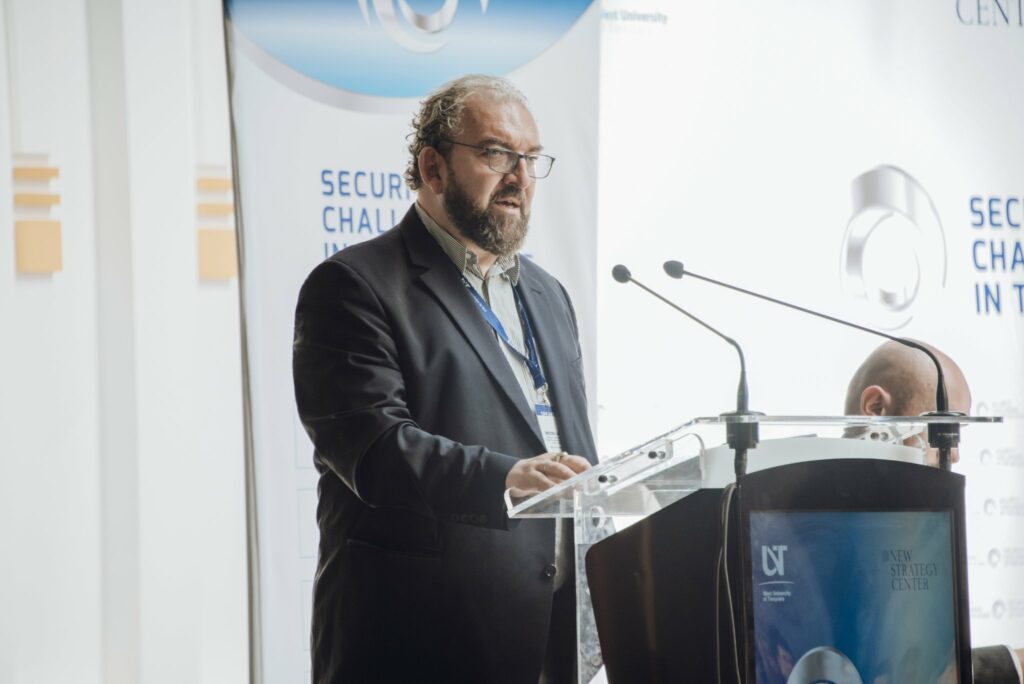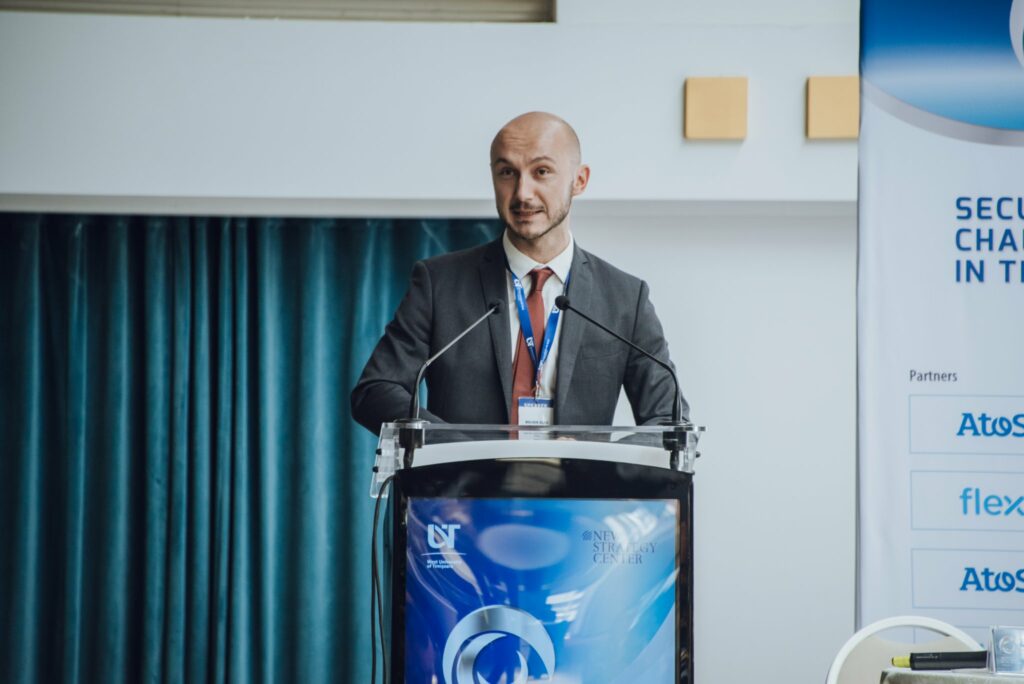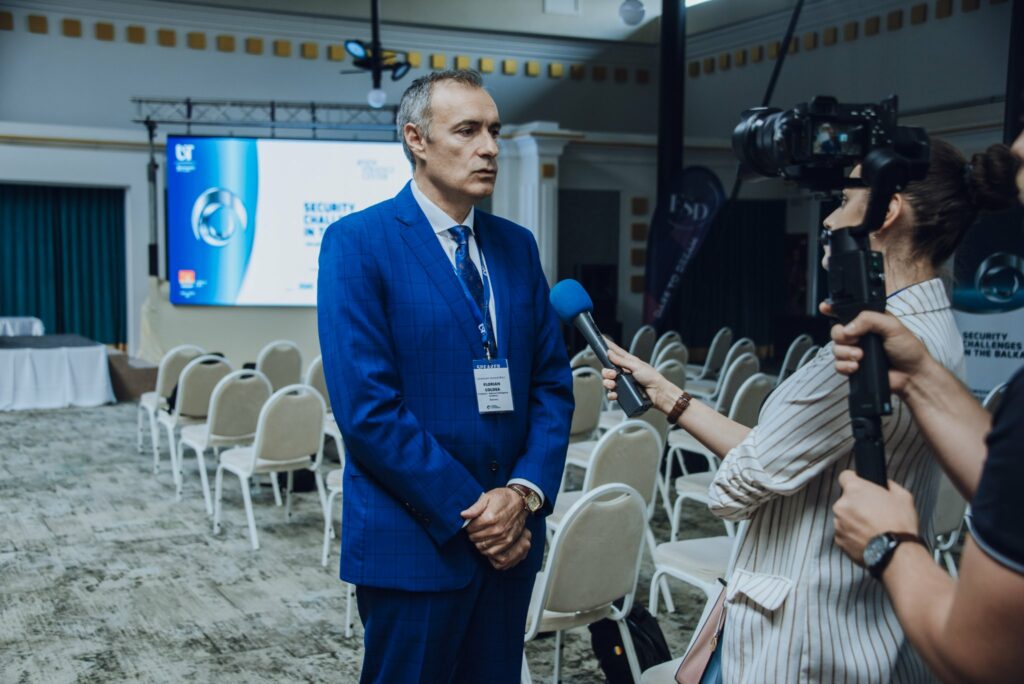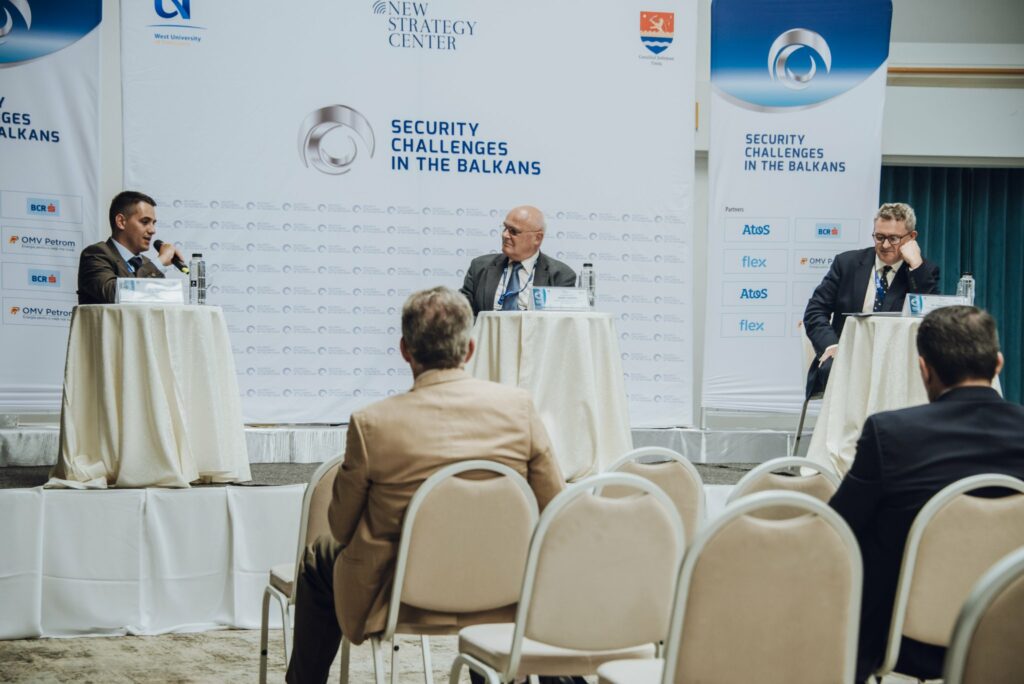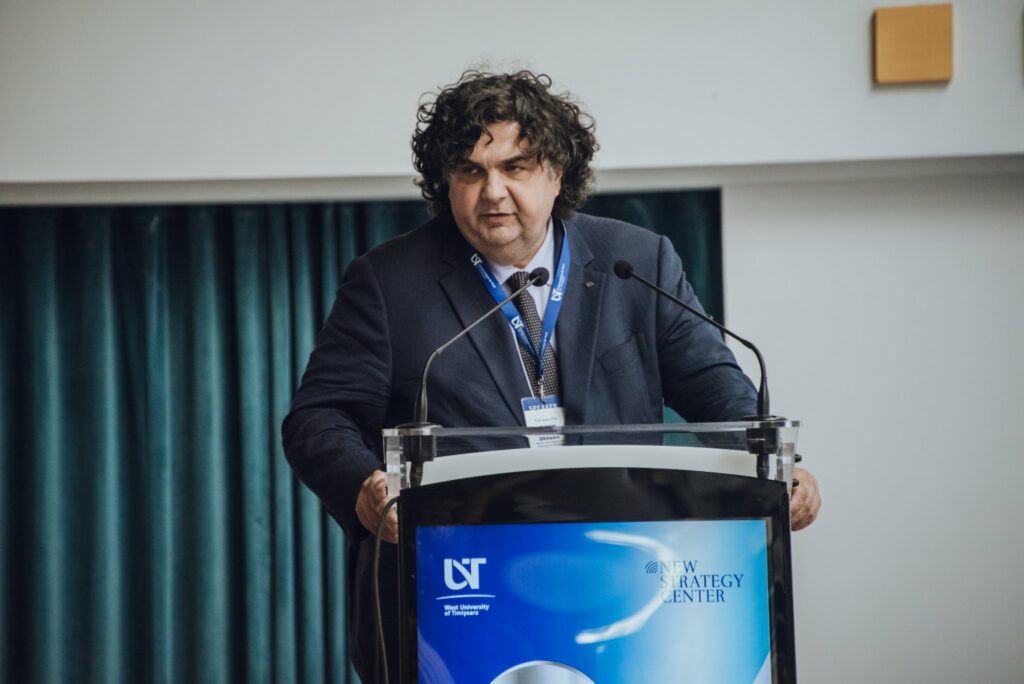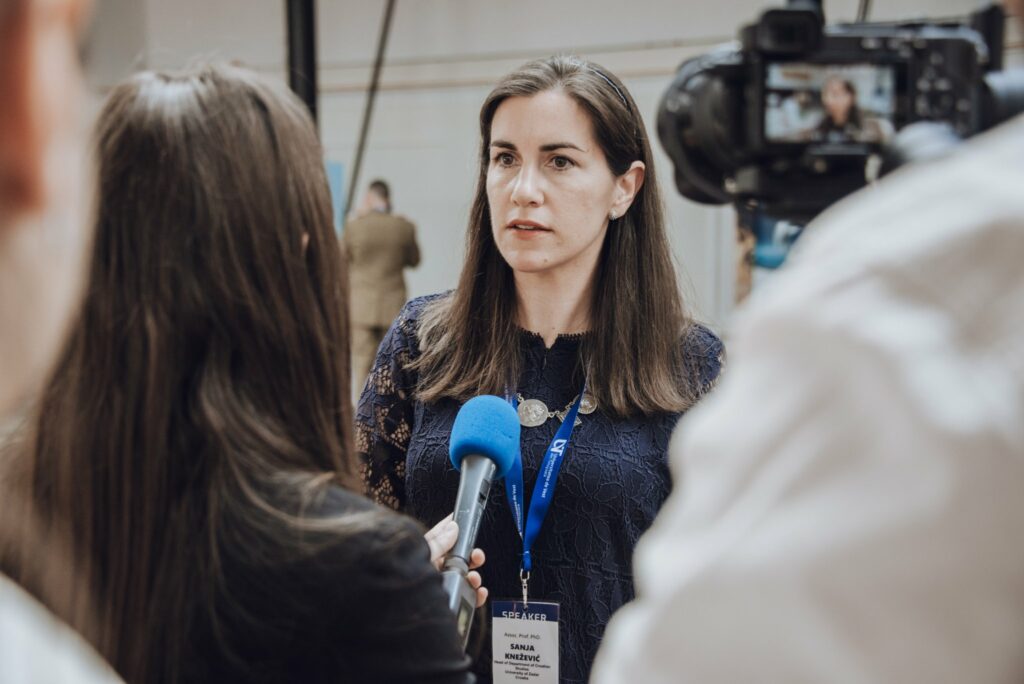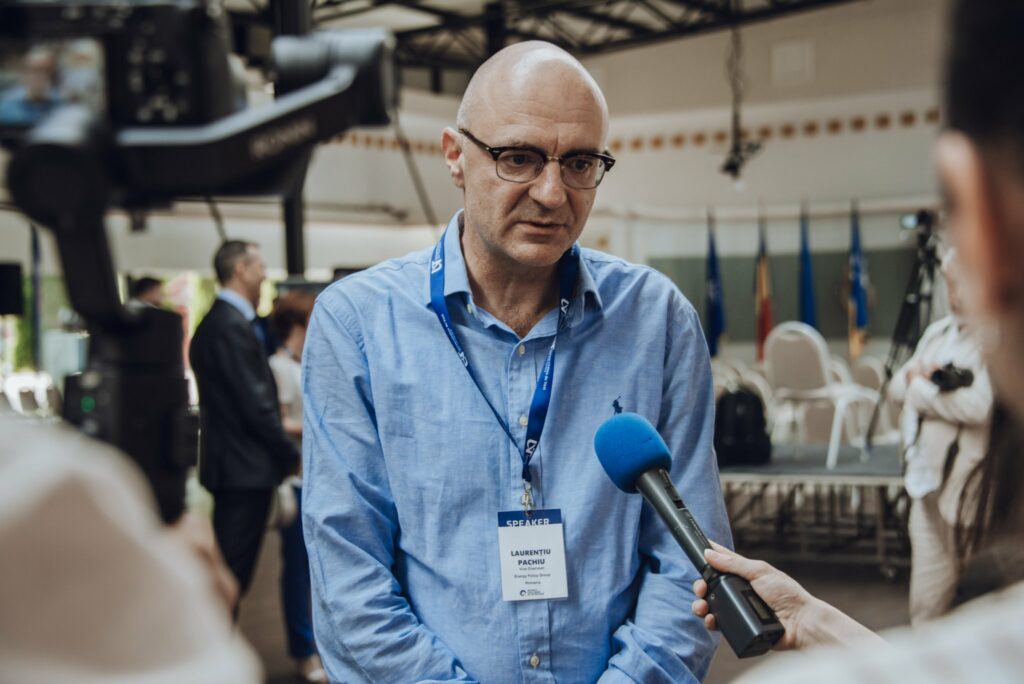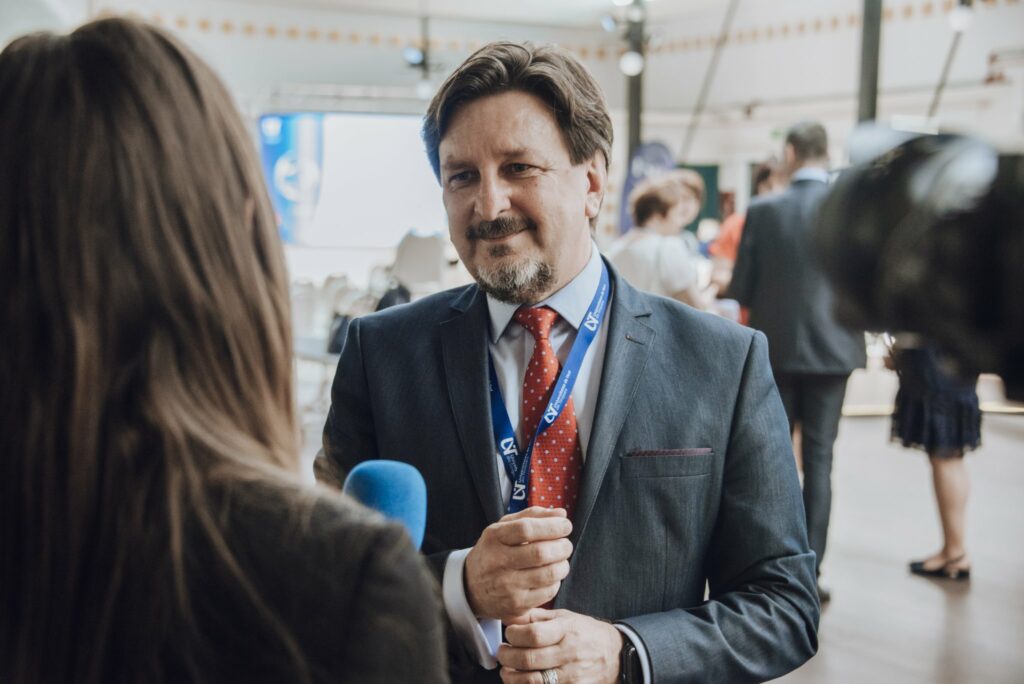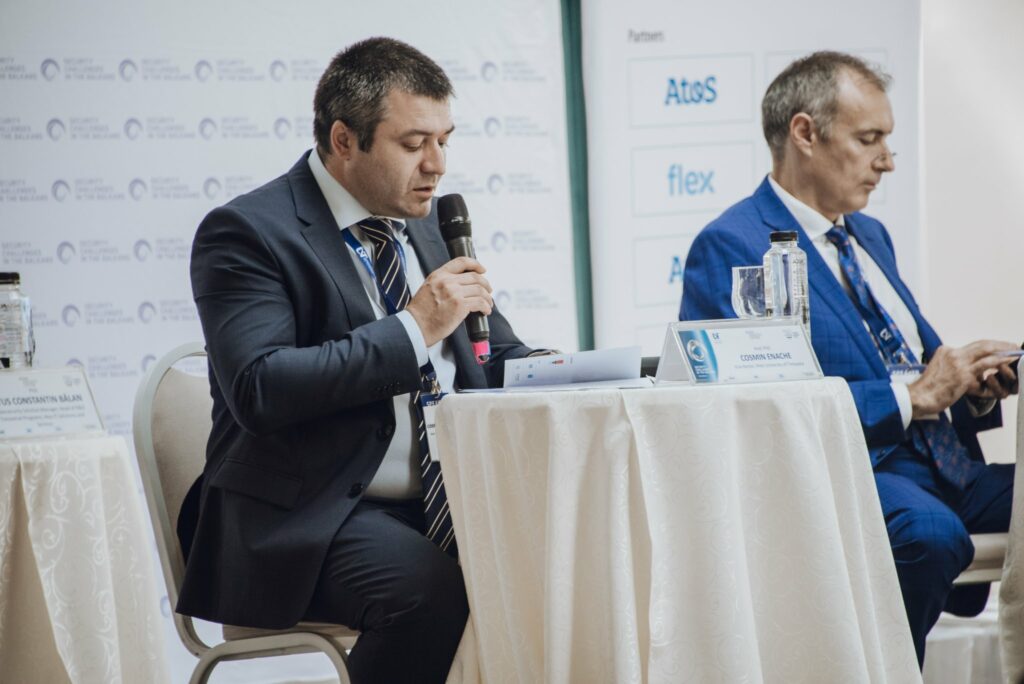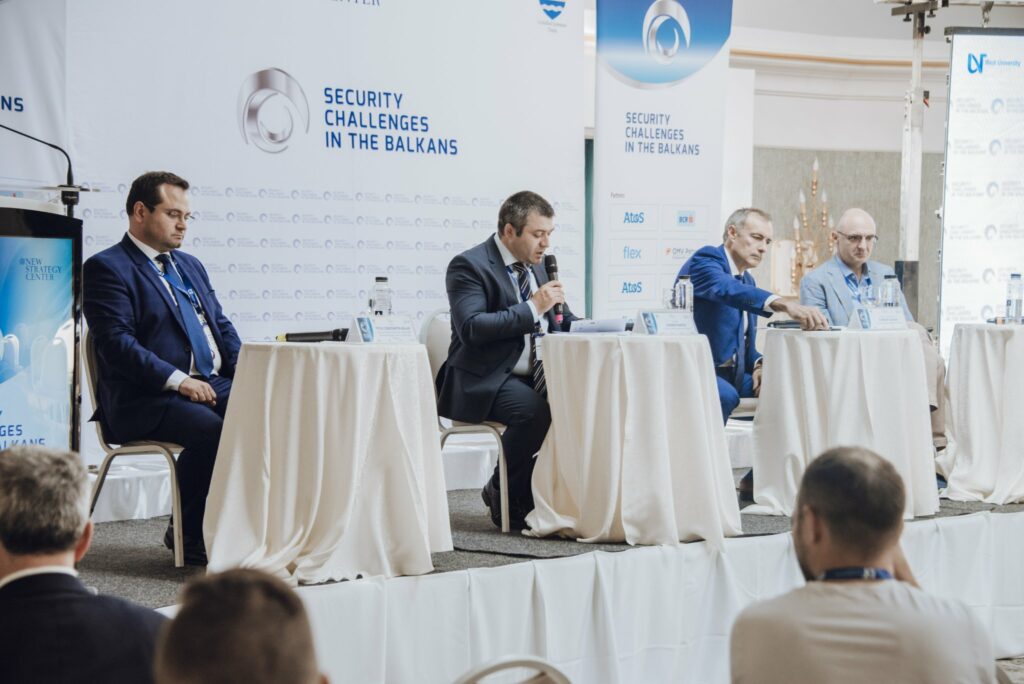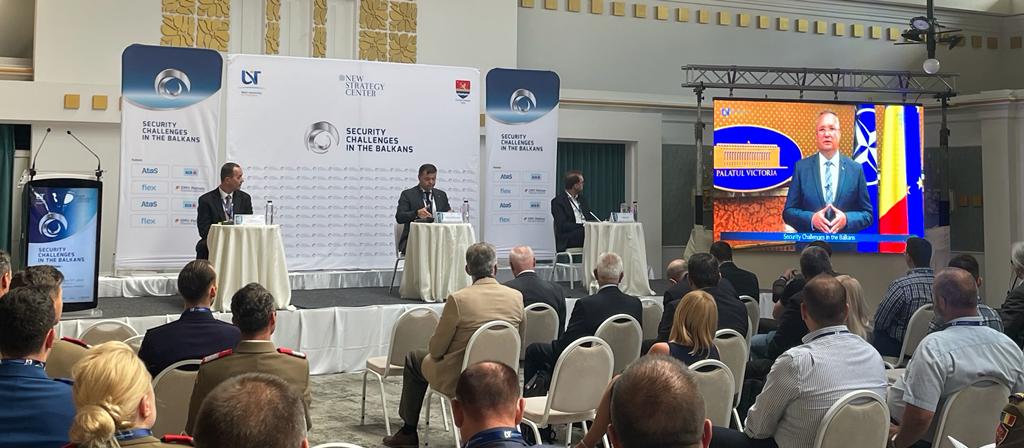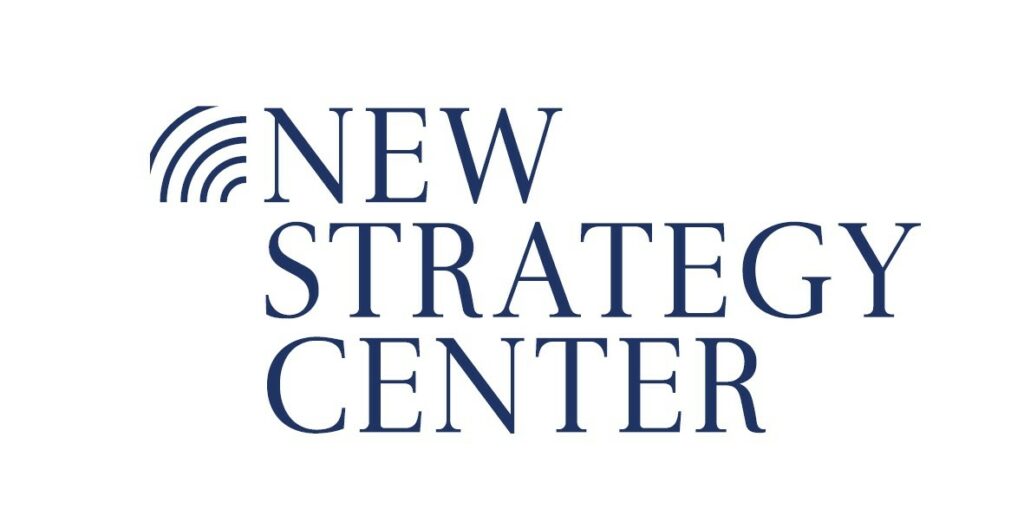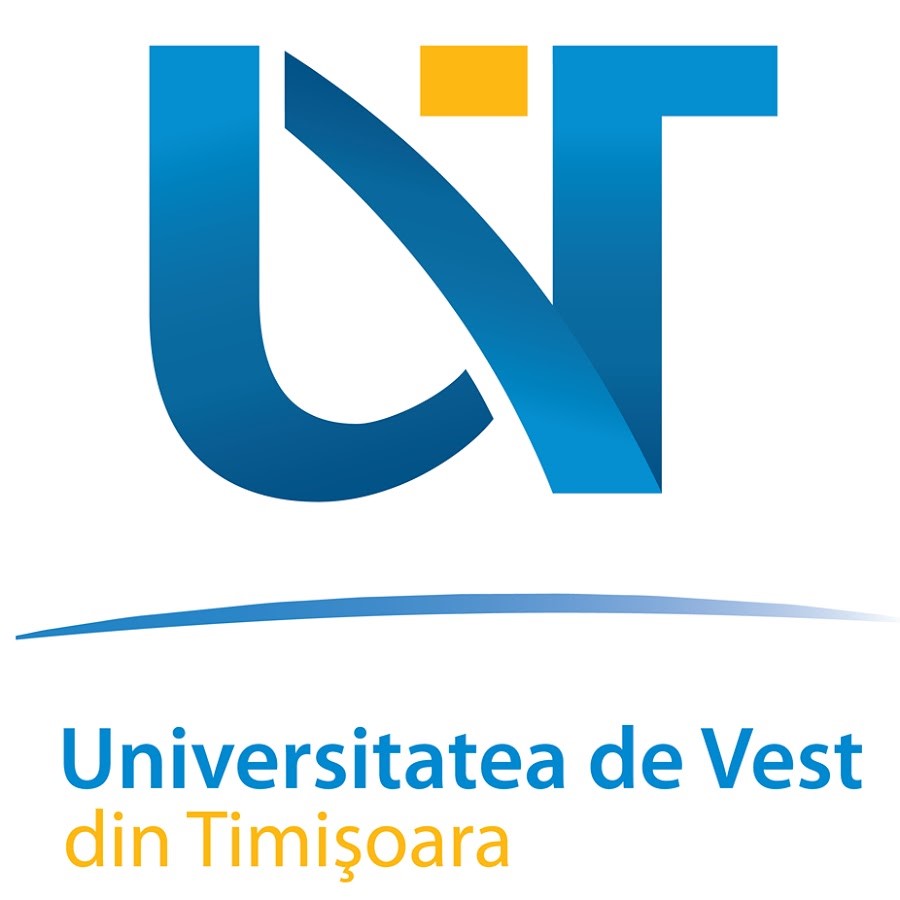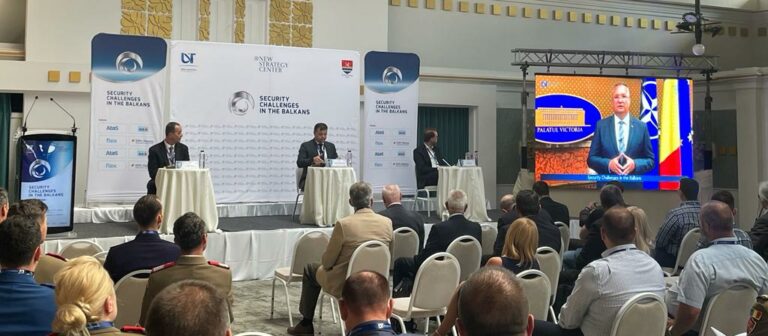The Western University of Timișoara, in partnership with the New Strategy Center association, organized today the sixth edition of the international conference "Security challenges in the Balkans", held under the Patronage of the Romanian Ministry of Foreign Affairs. The event strengthened the tradition of this conference, unique for the Banat region, bringing to Timișoara guests with significant professional experience, far-reaching professionals who guided the debates about the classic and emerging security challenges in the Balkan region.
The themes included on the agenda of the event appealed to the suite of security challenges in the South-Eastern European region in the context of the war in Ukraine, inventorying the ways to counter classic and hybrid threats in the Balkan region. The conference reiterated the mechanism of resilience through education, as a tool for building and strengthening stability in the Balkans. The topics addressed were analyzed by Romanian officials and experts, from NATO, from Great Britain, France, Germany, Hungary, Ukraine, Serbia and Bosnia and Herzegovina. Organized at the Senator complex in Timișoara, the conference benefited from the presence of representatives of the diplomatic corps and the academic and business environment from Romania.
The official opening of the event benefited from the intervention of the Rector of the West University of Timișoara, Marilen Gabriel Pirtea, the President of the New Strategy Center, Ionel Nițu, and the Mayor of the Municipality of Timișoara, Dominic Fritz. Also, the opening of the event was marked by a special message from the Prime Minister of Romania, Nicolae Ciucă, who emphasized the international security context "subject to a number of threats and challenges that we thought were a thing of the past". The Prime Minister emphasized the importance of the European Union enlargement process, which is based both on the EU's responsibility and on "the political will of the candidates to achieve their commitments assumed in the accession process". On this occasion, the strategic importance of the region and the usefulness of a debate platform of this type, which brings together both independent and international expertise, were confirmed.
Among the speakers registered in the debate panels were officials and experts from several countries, such as Ovidiu Raețchi, the President of the Euro-Atlantic Center for Resilience within the Ministry of Foreign Affairs, Stuart Peach, the special representative of the British Prime Minister for the Western Balkans , Christiane Hullmann, Director of the Federal Foreign Office of Germany, General (ret.) Leonardo Dinu, from the NSC Scientific Council, General (ret.) James Everard, former Deputy Commander Allied Forces Europe (DSACEUR), Professor Mário Lino Barata Raposo, Rector of Beira Interior University, Portugal, Professor Florin Drăgan, Rector of Timișoara Polytechnic University, Mihai Precup, Secretary of State in the Ministry of Finance, Titus-Constantin Bălan, Cybersecurity Solution Manager and Head R&D Transversal Programs, Atos, Romania, but and other branded guests.
UVT rector, Marilen Gabriel Pirtea: "It is now evident that the war in Ukraine has a major impact on the stability of the entire European continent and induces additional instability in the Balkans. While internationally the Ukrainian crisis occupies the front line of concerns, the conference organized by UVT and New Strategy Center, held in Timișoara, made possible a necessary analysis of the developments and consequences of the international crisis on the Balkans, from a political, military, economic, and structured the role of education in global resilience. We are happy that we can already talk about a tradition and that this event has reached its sixth edition."
______________________________________________
Panel I. Challenges of the South East Europe in the Context of the War in Ukraine and Post-Pandemic Crisis
The first panel of the conference benefited from the presence of renowned officials and experts in the field, such as Mr. Ovidiu Raețchi, President of the Euro-Atlantic Center for Resilience, Romania, Sir Stuart Peach, Special Envoy of the Prime Minister in the Western Balkans, from Great Britain, Ambassador Alain Le Roy, former Secretary General of the European External Action Service, France and Ms. . Christiane Hullmann, Head of Division of the Federal Foreign Office in the Western Balkans, Germany. The discussion was moderated by Ambassador Gheorghe Magheru, member of the Scientific Council of the New Strategy Center.
Given the increased focus on the Eastern Flank and the Black Sea region, Romania and its regional partners must address the challenge of strengthening their resilience in all sectors. From the perspective of Britain, which remains committed to the Euro-Atlantic integration of the Western Balkans, we cannot allow political and other crises to turn into security issues, which would risk spilling over into the entire region. One such example is the secessionist tendencies in Bosnia and Herzegovina, fueled by Russia's energetic influence and its disinformation campaigns. Such issues are to be resolved, as the French position suggests, through EU unity: facilitating the enlargement process by establishing strong dialogues with Western Balkan capitals and unblocking the Bulgarian veto. Security issues across the continent should be addressed through a "European political community," a format that includes all states willing to cooperate with the European Union. Germany agrees that regional stability can only be ensured through the European integration of the Balkans, in the form of full EU membership, but without compromising the candidates' responsibilities to honor their commitments. It is important to underline the role of the Berlin Process in addressing the political, economic, energy and environmental agenda of future EU members.
___________________________________________________
Panel II. Countering Classic and Hybrid Threats in the Balkans area. Steps for a Resilient Region
The second panel focused on methods of countering classic and hybrid threats to help states become more cohesive, resilient and able to manage their internal tensions. The Balkan region is affected by problems such as the lack of functional democratic systems, economic weaknesses, energy dependencies, unresolved territorial disputes and lack of trust in state institutions and international organizations. All these issues are at risk of being used and manipulated by third parties with interests in the region. The discussion underlined the need for a clear, coherent and long-term approach of both the EU and NATO in this region, adapted to the current context marked by geopolitical competition. During the discussions, the need to strengthen a fusion center, able to help with good planning and good execution of coordinated actions at the regional level, was emphasized. This fusion center must be connected to civil society.
Also, to address the problems created by disinformation and propaganda campaigns, a set of effective information measures and the development of a higher level of media literacy among the population are needed. As it is also emphasized in the National Defense Strategy of the Country, Romania is involved and intends to intensify its efforts at the regional level, through cooperation projects in the field of defense and other joint activities, aimed at strengthening interoperability and good coordination between the Balkan states.
The discussion was moderated by Gl. Mr. (res.) Leonardo Dinu, member of the Scientific Council of the New Strategy Center, who was joined as speakers by Gen. (res.) Sir James Everard, former Deputy Supreme Allied Commander Europe and Honorary Chairman of the International Advisory Board of the New Strategy Centre, Gl. Mr. John Mead, Deputy Chief of Staff for Planning, Joint Allied Forces Command Naples, UK, Gl. Mr. Ciprian Marin, Commander of the 2nd "Getica" Infantry Division, Mr. Srecko Latal, regional coordinator of the Balkan Investigative Reporting Network (IBRD), Bosnia and Herzegovina and Mr. Bojan Elek, Deputy Director of the Belgrade Center for Security Policy, Serbia.
___________________________________________________
Special Session. Turkish-Russian Relations and their Impact on the Region. Presentation of a New Strategy Center Study
The special session of the conference focused on a new study released by the New Strategy Center, entitled "Squaring the Circle: The (Improbable) Quest for Strategic Equilibrium in Turkish-Russian Relations", written by Mr. Horia Ciurtin, expert of the New Strategy Center. The author was joined in the discussion by General (retd) Sir James Everard, former Deputy Supreme Allied Commander Europe (DSACEUR) and Honorary Chairman of the International Advisory Board of the New Strategy Centre, UK, who contributed an introduction within the work. The discussion was led by Ambassador Doru Costea, Member of the Scientific Council of the New Strategy Center.
The analysis aims to complement current perceptions about Russia and Turkey, as previous efforts have focused only on the influence of these actors on the Balkans and the Black Sea region, neglecting the dynamics of bilateral relations between them, characterized by both cooperation and competition. The Russian-Turkish relationship could, however, be "stretched to the limit" by the war in Ukraine. During the question and answer session, the speakers discussed the goals and methods of Turkey's foreign policy, not only towards Russia in the context of the war in Ukraine, but also in relation to other important actors for Ankara.
The study is available here.
___________________________________________________
Panel III. Building Resilience Through Education: The Case for the Balkans
The third panel of the Security Challenges in the Balkans conference addressed methods of increasing national resilience through education, especially in the Balkans area. The discussion benefited from varied expertise, being moderated by Prof. Silviu Rogobete, Western University of Timișoara, who was joined as speakers by Prof. Mário Lino Barata Raposo, Rector of Beira Interior University, Portugal, Prof. Assoc. Florin Drăgan, Rector of the Polytechnic University of Timișoara, Prof. Romiță Iucu, Vice-Chancellor of the University of Bucharest, and Prof. Assoc. Sanja Knežević, Director of the Department of Croatian Studies, University of Zadar, Croatia.
During the debate, the vulnerabilities of the resilience of the Balkans and their sources were presented, along with the presentation of ways to increase both national and regional resilience. The main sources of instability at the regional level are given by the presence of foreign influences and their increased activity in the political-economic field. Education is the foundation of knowledge, and an informed population is a resilient population. Thus, the active contribution of civil society and the education of the population from an early age are the foundations of a stable country. Also, there is a need to initiate training programs for teachers, which convey the essential information for developing resilience among students. At the level of educational institutions, it is necessary to organize intercultural programs for students and exchanges of experience.
___________________________________________________
Panel IV. Mitigating Risks and Consequences of Severe Crises. How to Ensure a Safer Region through Economic Opportunities?
The fourth panel of the Security Challenges in the Balkans conference addressed the dimension of international economic transformations in the Balkans area, with an emphasis on alternatives for a weighted approach to critical economic risks. The discussion benefited from a wide range of expertise, being moderated by Prof. Cosmin Enache, vice-rector of the West University of Timișoara and academic staff of the Faculty of Economics and Business Administration from UVT, who launched the dialogue together with Dr. Mihai Precup, Secretary of State within the Ministry of Finance of the Government of Romania, Mr. Laurențiu Pachiu, Vice Chairman of the Energy Policy Group, Romania, Gen. (rez) Florian Coldea, professor of the National Academy of Information and Visiting Professor UVT, and Dr. Titus – Constantin Bălan, Cybersecurity Solution Manager and Head R&D Transversal Programs, Atos, Romania.
___________________________________________________
INFO: the full content of the conference can be watched in VIDEO format on the UVT social media page (part one and Part Two).
